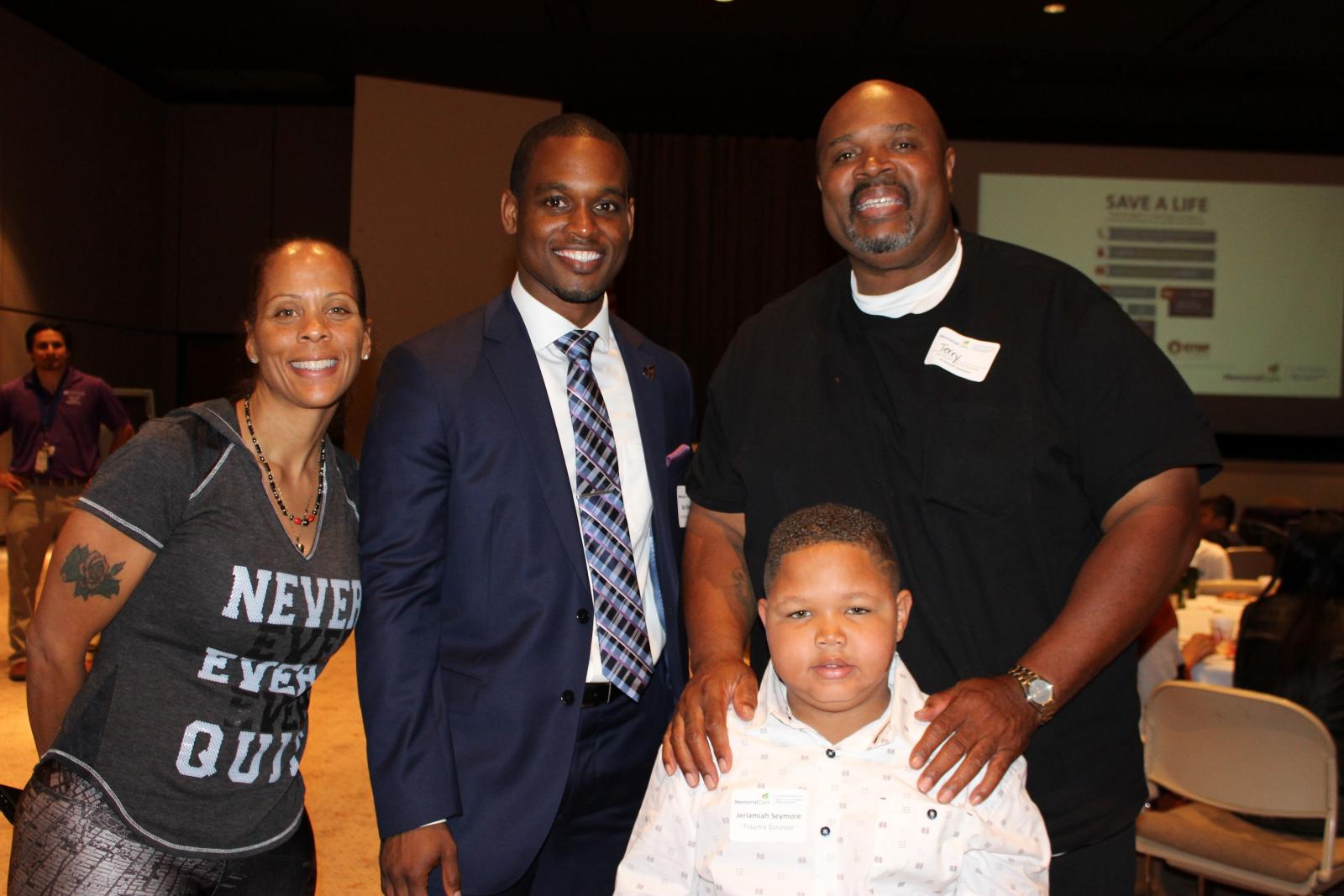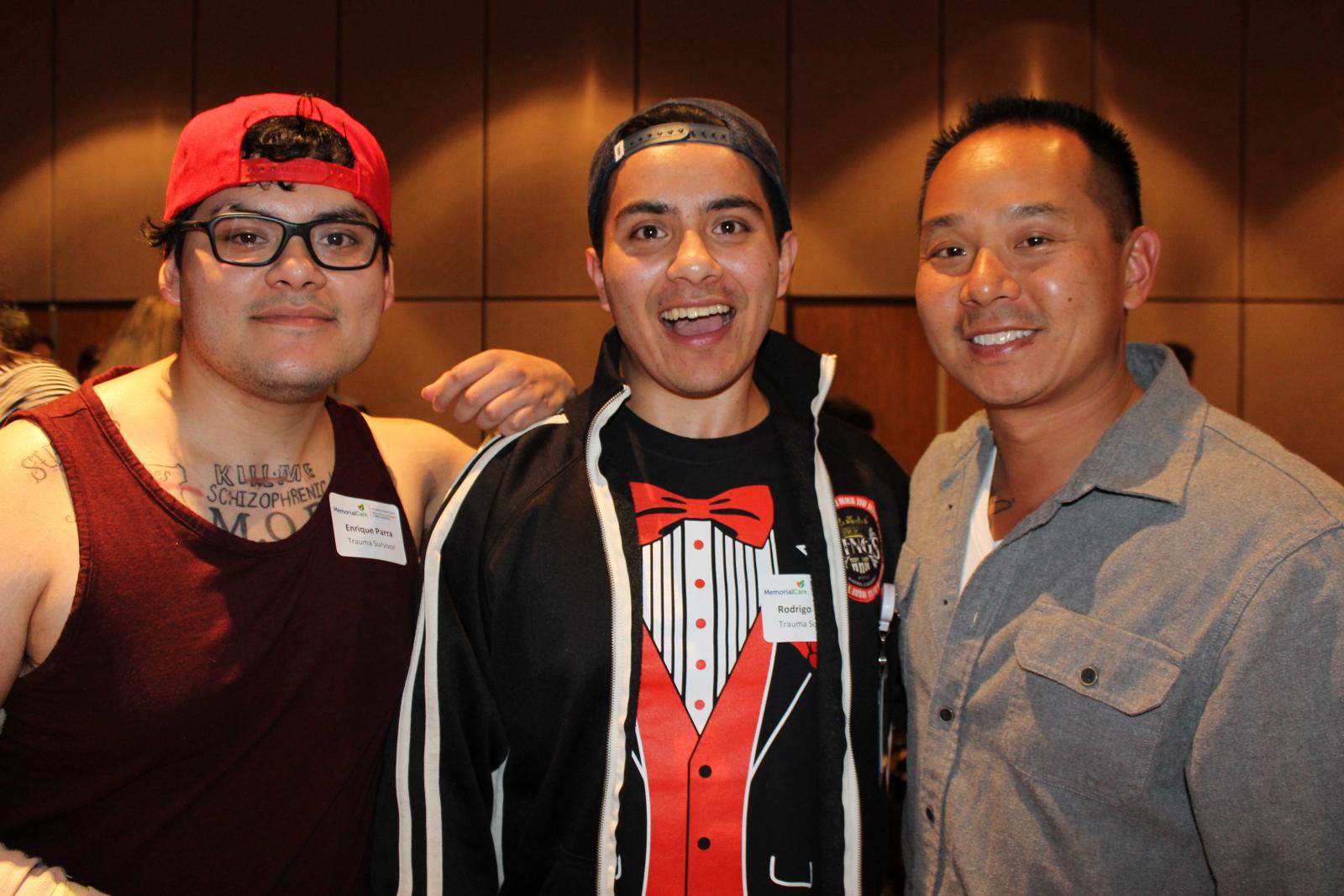On Wednesday, May 16, trauma survivors of every age walked and wheeled into the Trauma Survivors Day Reunion at MemorialCare Long Beach Medical Center and Miller Children’s & Women’s Hospital Long Beach.
The Trauma Survivors Day Reunion reunites more than 20 patients and their families, with the physicians, Trauma Center care team members and Emergency Medical Services team members that helped to bring them back from the brink of death. Long Beach Medical Center and Miller Children’s & Women’s treats more than 1,600 trauma patients each year.
The Trauma Survivors Day Reunion reinforces that trauma systems save lives and emphasizes the importance of the “golden hour,” the first 60 minutes of the injury in which critically injured patients have the greatest chance of survival.
“The golden hour is critical for injured patients,” says Reginald Jones, M.D., FACS, medical director, Trauma Center, Long Beach Medical Center and Miller Children’s & Women’s. “Patients treated within that golden hour have increased recovery rates.
The Trauma Survivors Day Reunion also is held as an emotional healing exercise for survivors on the recovery journey. The reunion included a segment where attendees were able to share their stories of survival.
One story came from the family of 14-year-old Omar Gonzales, who was in a near-fatal collision with a vehicle while riding his bike without a helmet. First responders arrived to an unconscious Omar whose broken body was lying underneath the truck involved in the accident.
In traumatic events, first responders use the Glasgow Coma Scale (GCS), a common scoring system to describe the level of consciousness in a person following a traumatic brain injury, to gauge the severity. A severe brain injury is typically classified as
GCS 8 or less. On the scene, Omar was classified as a GCS 3.
“I’m thankful for everyone who helped save my son’s life and I want to highlight the importance of helmet safety,” says Thomas Gonzalez, Omar’s father. “If my son had worn his helmet, his injuries would have been different. Helmets save lives.”
The event highlighted another key fact: the community plays a crucial role in sustaining the available blood product supply at the hospital’s Blood Donor Center. One trauma patient may need approximately 130 units of blood and at least eight platelet donors to have enough life-saving blood products. To schedule an appointment to donate blood can call the Blood Donor Center at (562) 933-0808 or visit our section on blood donation.
Kevin Gaddas, 33, was involved in a motorcycle accident and thrown 100-ft. He was rushed to Long Beach Medical Center, where a comprehensive care team at the Trauma Center helped saved his life.

At 4-years-old, Jeremiah “Blue” Seymour, was treated at the Trauma Center after he was mauled in the face by a dog. At the Trauma Survivors Day Reunion, Blue, now 7-years-old, and his family reunited with the trauma care team that made his cute smile shine again.

Lovingly known as the Parra Brothers and “Our Boys,” Enrique, 26 (left) and Rodrigo, 22 (center) have been cared for by a wide range of care teams across Long Beach Medical Center following a life-changing car accident. The fast-acting Trauma Center saved their lives, and many other care teams and specialists, including Jason Koh, D.O., co-medical director, MemorialCare Rehabilitation Institute (right) have worked closely with the brothers through recovery.